Mass General Cancer Center Announces First Recipients of Krantz Awards for Cancer Research
The inaugural class of awardees will receive more than $6 million in funding to accelerate groundbreaking cancer research.
Krantz Family Center for Cancer Research
The Krantz Awards — the hospital’s most significant internal funding opportunity for cancer research — were established in 2023 to fundamentally change how cancer is diagnosed and treated at Mass General Cancer Center and beyond. In supporting the visionary efforts of the Krantz Center faculty, the awards are expected to accelerate research and drive cancer discovery across the institution and generate a seismic shift in the treatment of cancer for patients around the world.
Meet the inaugural Krantz Award recipients below.
Targeting transcription factors to open doors to new cancer therapies
This initiative combines leading research from three Krantz Family Center for Cancer Research laboratories: the Bar-Peled laboratory, which develops cutting-edge chemical biology techniques for understanding how cancer cells respond to altered metabolic states; the Lawrence laboratory, which uses computational genomics to explore the many ways that DNA alterations contribute to cancer through processes of DNA damage and repair; and the Ott laboratory, which applies uses targeted protein degradation to probe the gene expression control factors that are essential for cancer cells to survive.
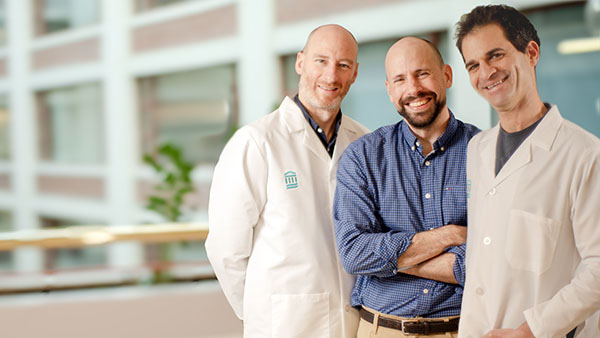
Decades of molecular oncology studies have established a class of genes encoding proteins referred to as “transcription factors” as among the most compelling targets for cancer therapy. Transcription factors control master cellular pathways at the level of gene expression, and their alterations underlie many different types of cancers. However, current chemical approaches aren’t designed to target these genes, and the biopharmaceutical industry hasn’t pursued this path, because of a belief that transcription factors are difficult to tame using drug interventions. By combining their innovative chemical biology, proteomics, biochemistry and bioinformatics, Drs. Bar-Peled, Lawrence and Ott have charted a novel strategy to identify and target uniquely vulnerable sites on transcription factor proteins implicated in different types of cancer. Their goal with this initiative: to develop new classes of anti-cancer drugs with the potential to help a large percentage of cancer patients.
Bioengineering CAR T-cell designs for immunotherapy
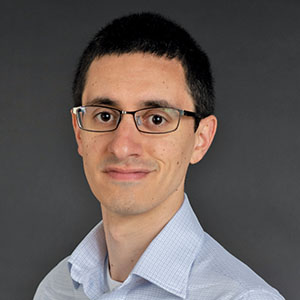 Robert Manguso, PhD
Robert Manguso, PhD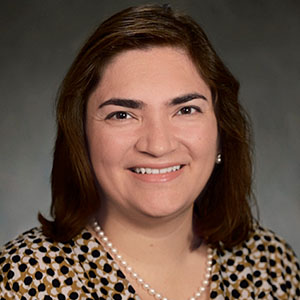 Marcela Maus, MD, PhD
Marcela Maus, MD, PhDChimeric antigen receptor (CAR) T-cells — immune cells that are engineered in the lab to attack cancer cells within patients, with potentially curative impact — have transformed the landscape of cancer treatment. But in some cancers, patients haven’t seen durable remissions of their illness, and CAR T-cells have yet to be approved for solid tumors due to low response rates.
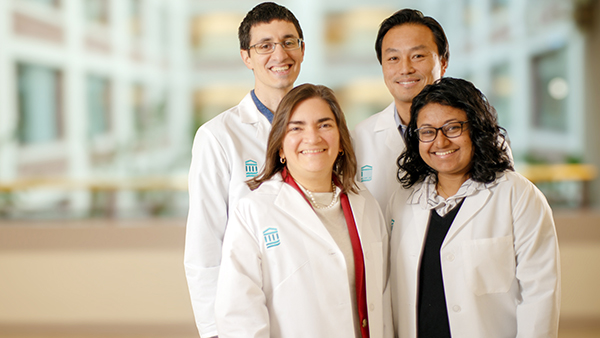
This team of researchers believes the most important regulators of CAR T-cell function in both solid and liquid tumors remain undiscovered, and their project will explore those regulators to address this challenge. Drs. Jan, Manguso, Maus and Sen have a wide range of expertise in CAR T-cells, from bioengineering of cellular pathways within cells, DNA regulation and mouse modeling all the way to clinical trials. Their goal is to optimize CAR T-cell engineering to improve the cells’ ability to kill cancer cells, reduce the cases where they fail (so-called CAR T-cell “exhaustion”), and develop ways to regulate them once they have been introduced into the patient to prevent side effects and toxicity.
Addressing side effects and resistance to adoptive T-cell therapy in melanoma
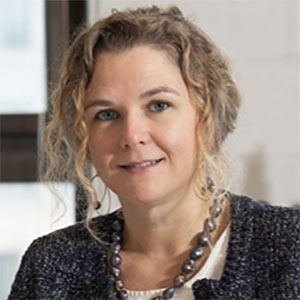 Genevieve Boland, MD, PhD
Genevieve Boland, MD, PhDA new and highly promising cancer immunotherapy involves autologous tumor-infiltrating lymphocyte (TIL) cell therapy, which requires surgically harvesting immune cells that naturally invade tumors, massively expanding them in the lab and reinjecting them into the patient. Adoptive T-cell therapy has achieved dramatic and sustained results in melanoma patients who were no longer responding to standard therapy. Compared with engineered CAR T-cell therapy, the adoptive therapy has the benefit of using natural immune cells that are already trying to fight the tumor.
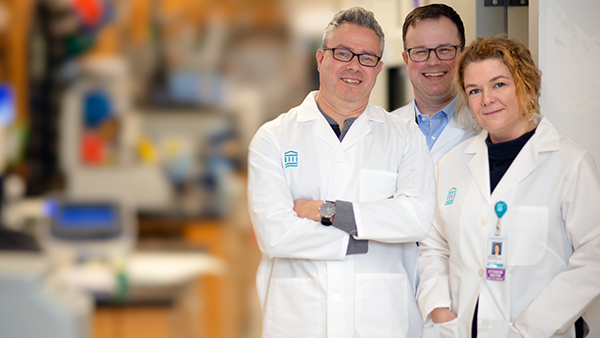
The first TIL therapy for melanoma patients is expected in January 2024, but only a third of patients currently benefit from this treatment. Much remains to be defined about the best way to deploy TIL cell therapy. Using cancer cell lines and matched TIL from patients with treatment-resistant melanoma, Dr. Jenkins recently identified a novel class of TIL cells capable of killing cancer cells. At the same time, Drs. Boland and Sade-Feldman have been examining melanoma tumors to fully understand the presence and expression of TIL cells. To develop optimal strategies for this type of cancer therapy, the team will combine their surgical expertise, in vitro culture technologies and molecular sequencing approaches with melanoma as their proof of principle.
Learn more about the team's research: Revolutionizing Cancer Immunotherapy for Melanoma and Beyond.
Exploring cancer metabolism to direct treatments
 Nabeel Bardeesy, PhD
Nabeel Bardeesy, PhD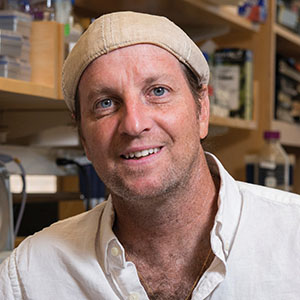 Raul Mostoslavsky, MD, PhD
Raul Mostoslavsky, MD, PhDWhile most molecular studies of cancer have focused on DNA, RNA and protein abnormalities within tumor cells, researchers know much less about the cell nutrients — known as metabolites — that cancers need to grow. Research has established that cancers metabolize glucose and amino acids differently than normal cells, but the technology required to explore cancer metabolism is complicated and poorly accessible.
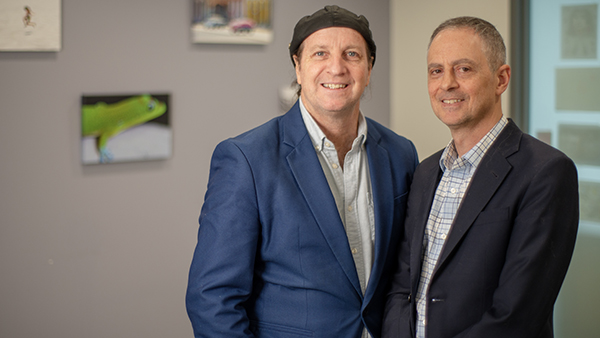
This team’s goal is to establish an infrastructure that will unlock understanding and drive therapeutic discovery relating to cancer metabolism. Leveraging their expertise in cancer biology and metabolism, Drs. Bardeesy and Mostoslavsky will create a linchpin technology: a highly specialized resource dedicated to “metabolomics,” using comparisons of primary and metastatic cancers in mouse models and in humans. The team’s work will concentrate on pancreatic ductal adenocarcinoma (PDAC), an illness that is projected to become the second-leading cause of cancer-related death in the U.S. in coming years. Once the team has established the metabolomics resource, they will test whether targeting genes that control cancer cell metabolism can suppress cancer metastasis — an especially crucial need in PDAC, where the majority of patients present with metastatic disease at diagnosis and face a five-year survival rate of merely 10 percent.
Studying the role of DNA damage pathways within immune cells
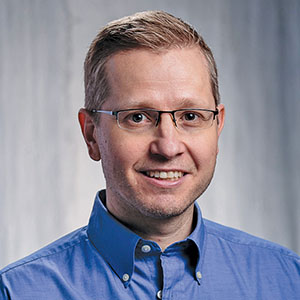
Andrew Elia, MD, PhD
Assistant Professor of Radiation Oncology
Developing deep learning molecular language model for cancer drug discovery
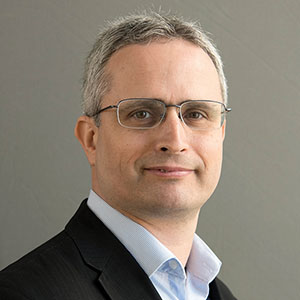
Gad A. Getz, PhD
Director of Bioinformatics, Cancer Center and Pathology
Director of Cancer Bioinformatics, Broad Institute of Harvard and MIT
Paul Zamecnik, MD Endowed Chair in Oncology Basic Research
Professor of Pathology
Creating and testing models of patient-derived lymphomas
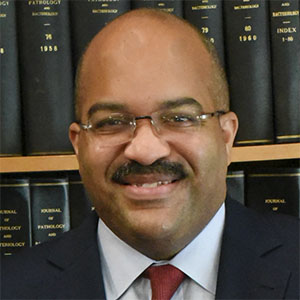
Abner Louissaint, Jr., MD, PhD
Aziz and Nur Hamzaogullari Endowed Scholar in Hematologic Malignancies
Associate Professor of Pathology
Altering chromatin regulation in combination with cancer chemotherapy
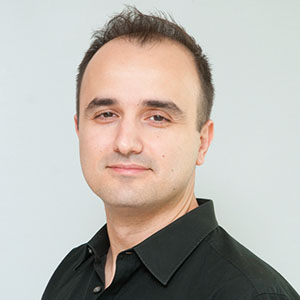
Mo Motamedi, PhD
James and Patricia Poitras Endowed Chair in Cancer Research
Assistant Professor of Medicine
Non-invasive blood testing for immunotherapy complications
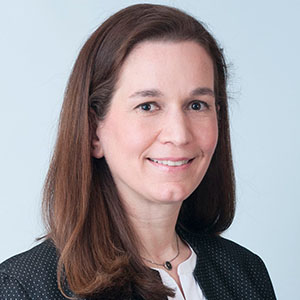
Shannon Stott, PhD
d’Arbeloff MGH Research Scholar 2022-2027
Associate Professor of Medicine
Flow cytometer
Advanced, multi-parameter analyzer for identification and quantification of immune cells and their functional characteristics.
Incucyte live cell imaging
Technological platform to enable imaging and analysis of live-cell behavior in real-time.
Confocal microscope
Advanced 3D microscopy for highly detailed analysis of organelles and other components within cells.
High resolution imaging data storage
Storage capability for massive amounts of data generated by new spatial transcriptomics platforms.
When you support us you are enabling discoveries that will lead to effective new weapons in the battle against cancer.
The inaugural class of awardees will receive more than $6 million in funding to accelerate groundbreaking cancer research.
The newly named Krantz Family Center for Cancer Research will empower Mass General Cancer Center researchers to tackle the major unsolved challenges in oncology.
The inaugural class of awardees will receive more than $6 million in funding to accelerate groundbreaking cancer research.
The newly named Krantz Family Center for Cancer Research will empower Mass General Cancer Center researchers to tackle the major unsolved challenges in oncology.
The inaugural class of awardees will receive more than $6 million in funding to accelerate groundbreaking cancer research.
The newly named Krantz Family Center for Cancer Research will empower Mass General Cancer Center researchers to tackle the major unsolved challenges in oncology.
The Krantz Family Center for Cancer Research serves as the scientific engine for discovery for the Mass General Cancer Center.